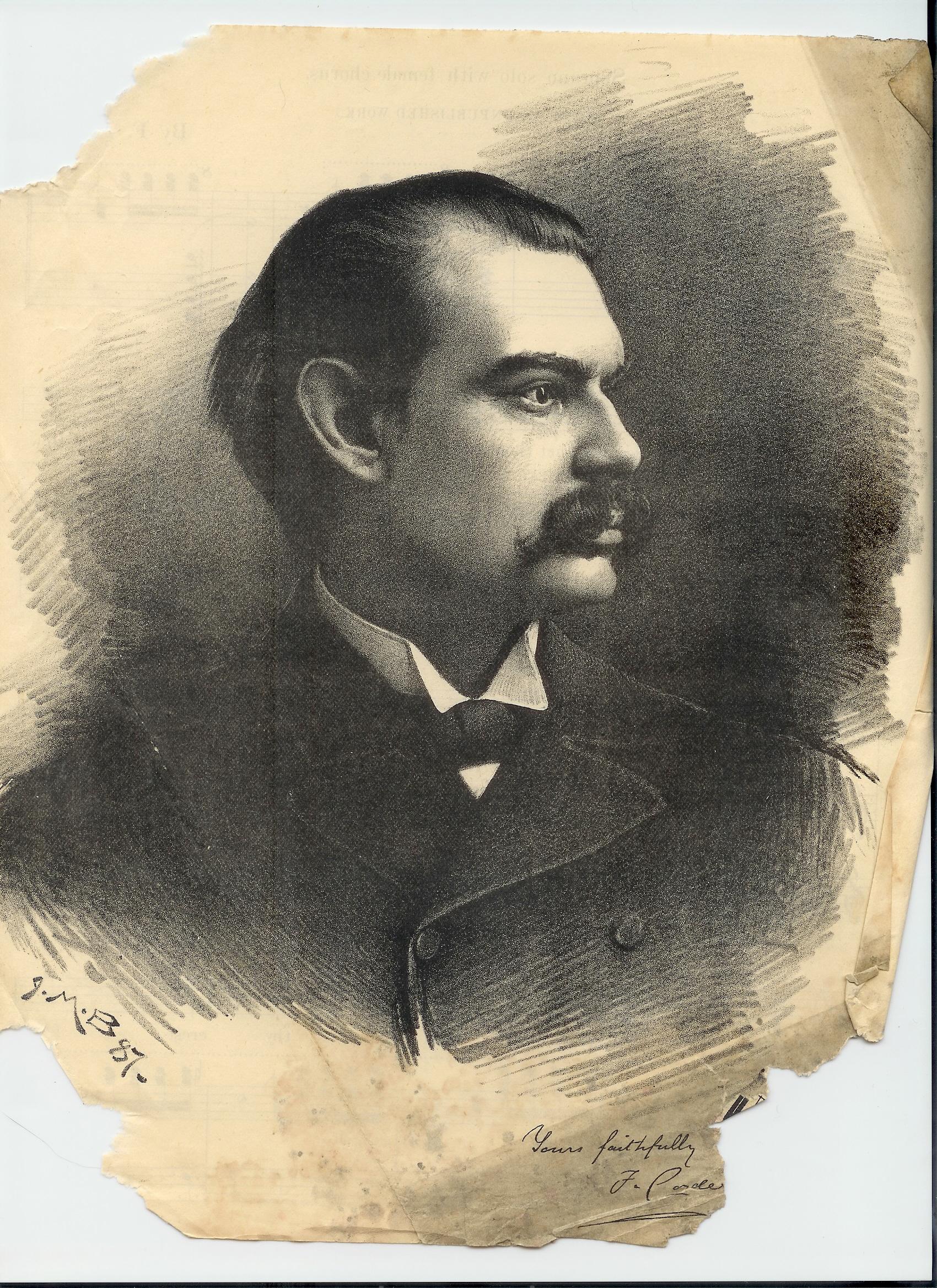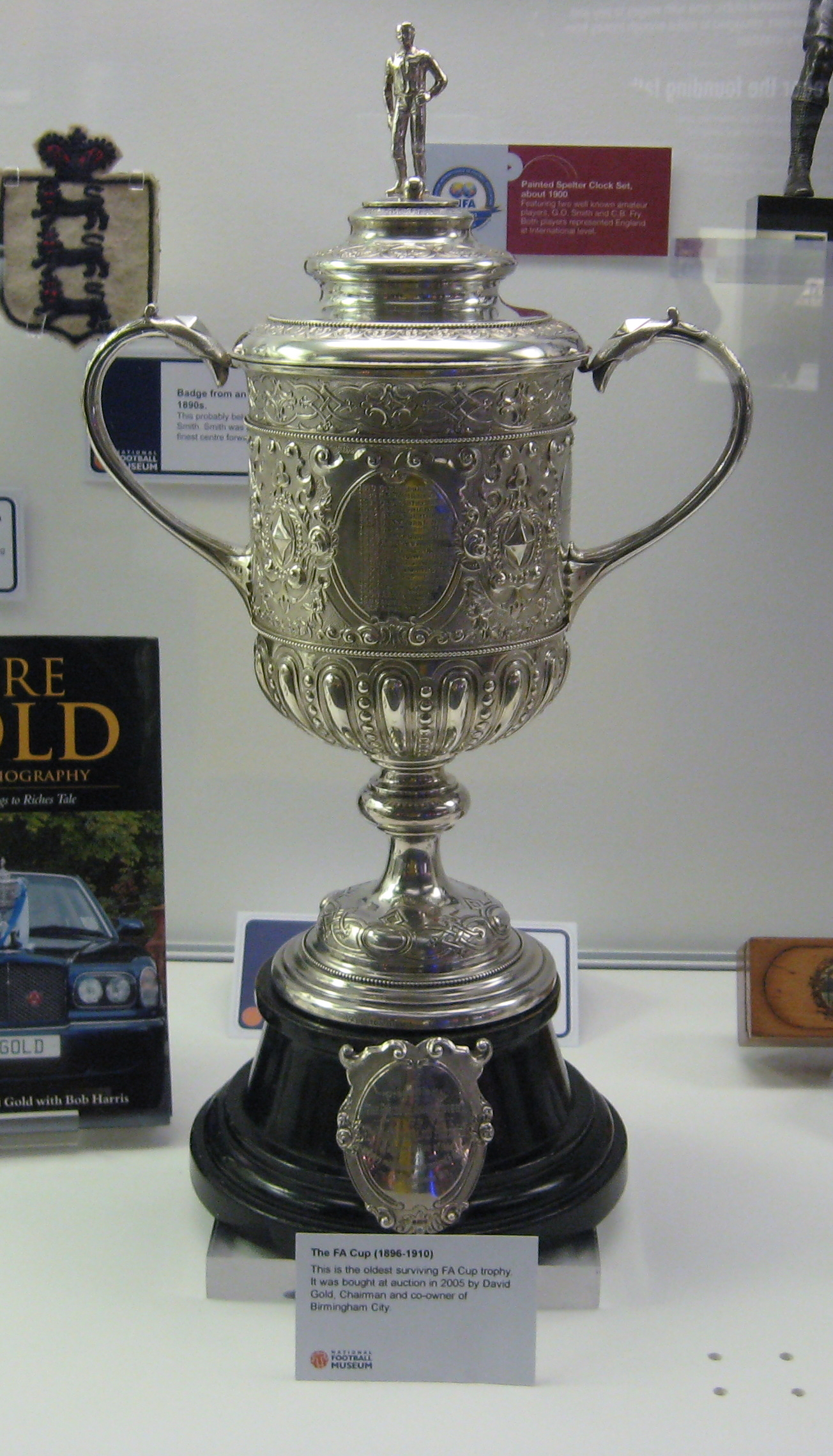|
Arthur Goring Thomas
Arthur Goring Thomas (20 November 185020 March 1892) was an English composer. Life He was the youngest son of Freeman Thomas and Amelia, daughter of Colonel Thomas Frederick. His elder brothers included Freeman Frederick Thomas, a noted cricketer, who was the father of Freeman Freeman-Thomas, 1st Marquess of Willingdon, Viceroy of India; and Sir Charles Inigo Thomas. He was born at Ratton Park, Sussex, and educated at Haileybury College. He was intended for the Civil Service, but delicate health interfered with his studies, and in 1873 he went to Paris to cultivate the musical talent he had displayed from an early age. Here he studied for two years with Émile Durand. In 1875, he returned to England, and in 1877 entered the Royal Academy of Music, where for three years he studied under Ebenezer Prout and Arthur Sullivan, twice winning the Lucas medal for composition. At a later period he received some instruction in orchestration from Max Bruch. His first published compositi ... [...More Info...] [...Related Items...] OR: [Wikipedia] [Google] [Baidu] |
Esmeralda (opera)
''Esmeralda'' is an opera in four acts composed by Arthur Goring Thomas to an English-language libretto by Theo Marzials and Alberto Randegger based on Victor Hugo's 1831 novel ''The Hunchback of Notre-Dame''. It premiered in London on 26 March 1883 at the Theatre Royal, Drury Lane with Georgina Burns in the title role and Barton McGuckin as her lover, Phoebus. Background ''Esmeralda'' was Thomas's first opera to receive a full staging. He dedicated it to Pauline Viardot. It was commissioned by the Carl Rosa Opera Company following a very successful performance of excerpts from his opera ''The Light of the Harem'' in 1879 at the Royal Academy of Music where he was a student at the time. Alberto Randegger (the musical director of the Carl Rosa company) and the eccentric British poet Theo Marzials co-wrote the libretto. Its subject, Esmeralda, a central protagonist in Victor Hugo's novel ''Notre-Dame de Paris'' (''The Hunchback of Notre-Dame''), had already been the focus of sev ... [...More Info...] [...Related Items...] OR: [Wikipedia] [Google] [Baidu] |
Carl Rosa Opera Company
The Carl Rosa Opera Company was founded in 1873 by Carl Rosa, a German-born musical impresario, and his wife, British operatic soprano Euphrosyne Parepa-Rosa to present opera in English in London and the British provinces. The company premiered many operas in the UK, employing a mix of established opera stars and young singers, reaching new opera audiences with popularly priced tickets. It survived Rosa's death in 1889, and continued to present opera in English on tour until 1960, when it was obliged to close for lack of funds. The company was revived in 1997, presenting mostly lighter operatic works including those by Gilbert and Sullivan. The company "was arguably the most influential opera company ever in the UK". Background Carl Rosa was born Karl August Nikolaus Rose in Hamburg, Germany, the son of a local businessman. A child violin prodigy, Rosa studied at the Conservatorium at Leipzig and in Paris. In 1863 he was appointed Konzertmeister at Hamburg, where he had occ ... [...More Info...] [...Related Items...] OR: [Wikipedia] [Google] [Baidu] |
Opéra Bouffe
Opéra bouffe (, plural: ''opéras bouffes'') is a genre of late 19th-century French operetta, closely associated with Jacques Offenbach, who produced many of them at the Théâtre des Bouffes-Parisiens, inspiring the genre's name. Opéras bouffes are known for elements of comedy, satire, parody and farce. The most famous examples are '' La belle Hélène'', '' Barbe-bleue'' (''Bluebeard''), '' La Vie parisienne'', '' La Périchole'' and '' La Grande-Duchesse de Gérolstein''. Sources *Bartlet, M. Elizabeth C.: "Opéra bouffe" Stanley Sadie (ed.), ''The New Grove Dictionary of Opera ''The New Grove Dictionary of Opera'' is an encyclopedia of opera, considered to be one of the best general reference sources on the subject. It is the largest work on opera in English, and in its printed form, amounts to 5,448 pages in four volu ...'' (London, 1992). {{DEFAULTSORT:Opera Bouffe Opera genres Opera terminology ... [...More Info...] [...Related Items...] OR: [Wikipedia] [Google] [Baidu] |
Frederick Corder
Frederick Corder (26 January 1852 – 21 August 1932) was an English composer and music teacher. Life Corder was born in Hackney, the son of Micah Corder and his wife Charlotte Hill. He was educated at Blackheath Proprietary School and started music lessons, particularly piano, early. Later he studied with Henry Gadsby. After that he studied harmony with Claude Couldery. Frederick Corder continued his studies at the Royal Academy of Music, where he studied with George Alexander Macfarren (harmony and composition), William Cusins (piano) and William Watson (violin). In 1875, he earned a Mendelssohn Scholarship, which enabled him to study for four years abroad. He spent the first three in the Cologne Conservatory in Cologne, where he studied composition with Ferdinand Hiller and piano with Isidor Seiss. He spent his last year in Milan, without formal instruction. He did however meet Arrigo Boito and Giuseppe Verdi. Upon his return to England, in 1879, he became conductor at ... [...More Info...] [...Related Items...] OR: [Wikipedia] [Google] [Baidu] |
Julian Sturgis
Julian Russell Sturgis (21 October 1848 – 13 April 1904) was a British-American novelist, poet, librettist and lyricist. Educated at Eton College, Eton and Balliol College, Oxford, Sturgis distinguished himself in Eton's sporting activities and rowed for Balliol for three years. He then played association football as an amateur, from 1872 to 1876, and was the first foreigner to play in, and the first to win, an FA Cup Final. Sturgis qualified as a barrister, but he embarked on a writing career in 1874, producing novels, poetry, plays and libretto, libretti. He wrote the words for four operas, with music by Arthur Goring Thomas, Arthur Sullivan, Alexander Mackenzie (composer), Alexander Mackenzie and Charles Villiers Stanford, respectively. He is, perhaps, best remembered as the librettist for Sullivan's 1891 opera ''Ivanhoe (opera), Ivanhoe''. Early life and education Sturgis was born in Boston, Massachusetts, the fourth son of merchant and lawyer Russell Sturgis (1805� ... [...More Info...] [...Related Items...] OR: [Wikipedia] [Google] [Baidu] |
Covent Garden
Covent Garden is a district in London, on the eastern fringes of the West End, between St Martin's Lane and Drury Lane. It is associated with the former fruit-and-vegetable market in the central square, now a popular shopping and tourist site, and with the Royal Opera House, itself known as "Covent Garden". The district is divided by the main thoroughfare of Long Acre, north of which is given over to independent shops centred on Neal's Yard and Seven Dials, while the south contains the central square with its street performers and most of the historical buildings, theatres and entertainment facilities, including the London Transport Museum and the Theatre Royal, Drury Lane. The area was fields until briefly settled in the 7th century when it became the heart of the Anglo-Saxon trading town of Lundenwic, then abandoned at the end of the 9th century after which it returned to fields. By 1200 part of it had been walled off by the Abbot of Westminster Abbey for use as arable ... [...More Info...] [...Related Items...] OR: [Wikipedia] [Google] [Baidu] |
Ben Davies (tenor)
Ben Davies (6 January 1858 – 28 March 1943) was a Welsh tenor singer, who appeared in opera with the Carl Rosa Opera Company, in operetta and light opera, and on the concert and oratorio platform. He was spoken of as a successor of Edward Lloyd, as a leading British tenor, and retained something of his style and repertoire in concert performance. Training and operatic career, 1881–1891 Ben Davies was born in Pontardawe, Wales. He studied at the Royal Academy of Music in London under Alberto Randegger and Signor Fiori. He made his debut in 1881 in Michael Balfe's '' The Bohemian Girl'', and in the following ten years devoted himself principally to the operatic stage. In 1883 he created the role of Gringoire in Arthur Goring Thomas's '' Esmeralda'', in the first Carl Rosa season at Drury Lane Theatre: his future wife Clara Perry was in the cast as Fleur-de-lys. In that time he began to assume the mantle of Edward Lloyd, as the leading British operatic tenor. In 1 ... [...More Info...] [...Related Items...] OR: [Wikipedia] [Google] [Baidu] |
William Ludwig (singer)
William Ludwig (born William Ledwidge) (15 July 1847 – 25 December 1923) was an Irish operatic baritone who rose to fame in the second half of the nineteenth century. He was famous as an interpreter of Wagner, becoming in Britain and the United States the definitive Dutchman. He later became an equally famous concert artist. His most active period was from 1874 to 1908. Early life Born in Dublin, Ireland, his father was a chorister, music teacher and music copyist. He was educated at the National Schools, Marlborough Street, where he received musical instruction from John W. Glover. He attended O'Connell School in North Richmond Street and often sang in the monastery chapel. He came under the influence of Brother Swan and later entered a solicitor's office. He sang for a time in the choir of St. Paul's Church, Arran Quay, with Mr. J. J. Fagan, his life-long friend. His first lessons were from Richard Vincent O'Brien (father of Vincent O'Brien). He sang in University Church ... [...More Info...] [...Related Items...] OR: [Wikipedia] [Google] [Baidu] |
Barton McGuckin
Barton McGuckin (28 July 1852 – 17 April 1913) was an Irish tenor singer of renown, who made his career principally in Britain with the Carl Rosa Opera Company, but also gained a wide success in oratorio and concert. Richard Ellmann put him forward as the model for Bartell D'Arcy in James Joyce's story "The Dead", but this identification has been questioned in recent years. Training and early days McGuckin was born in Dublin and began studying music as a choirboy in Armagh Cathedral, where he received instruction in singing, organ, violin and pianoforte. In 1871 he became first tenor at St Patrick's Cathedral, Dublin and was a pupil of Joseph Robinson.Eaglefield-Hull 1924. He appeared in concerts from 1874, and made a debut at the Crystal Palace Concerts in 1875. He then went to study further at Milan, under Trevulsi.Eaglefield-Hull, 1924. Career with Carl Rosa Opera Company He made his stage debut with the Carl Rosa Opera Company in 1880, and remained with them at Theatre Ro ... [...More Info...] [...Related Items...] OR: [Wikipedia] [Google] [Baidu] |
Drury Lane
Drury Lane is a street on the eastern boundary of the Covent Garden area of London, running between Aldwych and High Holborn. The northern part is in the borough of Camden and the southern part in the City of Westminster. Notable landmarks The street originated as an early medieval lane referred to in Latin as the ''Via de Aldwych'', which probably connected St. Giles Leper Hospital with the fields of Aldwych Close, owned by the hospital but traditionally said to have been granted to the Danes as part of a peace treaty with King Alfred the Great in Saxon times. It acquired its name from the Suffolk barrister Sir Robert Drury, who built a mansion called Drury House on the lane around 1500. After the death in 1615 of his great-great-grandson, another Robert Drury, the property passed out of the family. It became the London house of the Earl of Craven, then a public house under the sign of his reputed mistress, the Queen of Bohemia. Subsequently, the gardens and courtyards ... [...More Info...] [...Related Items...] OR: [Wikipedia] [Google] [Baidu] |





